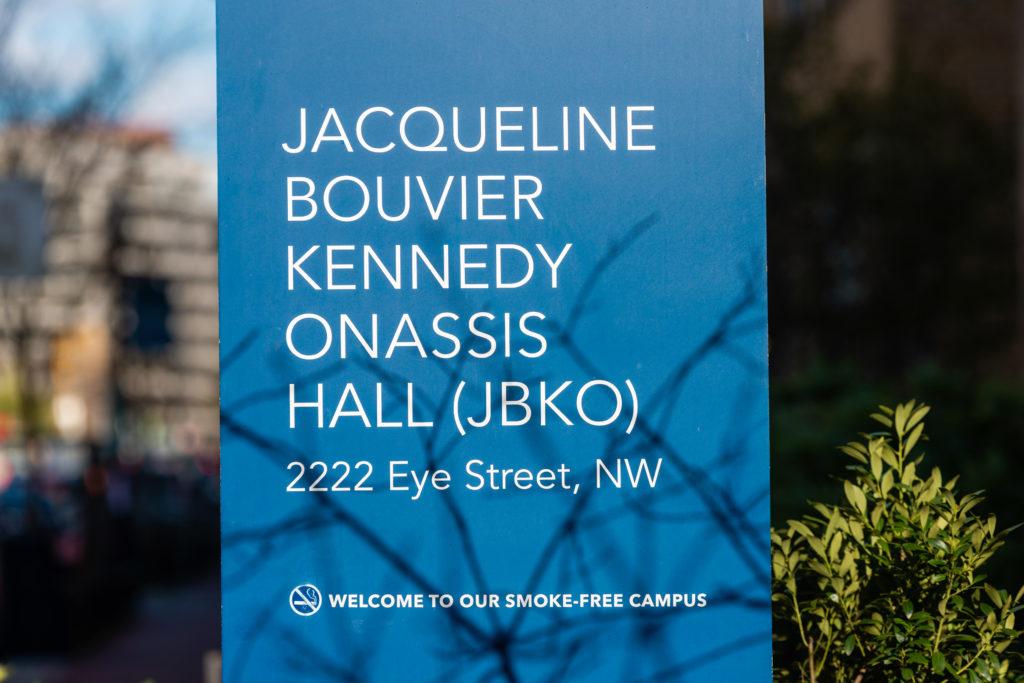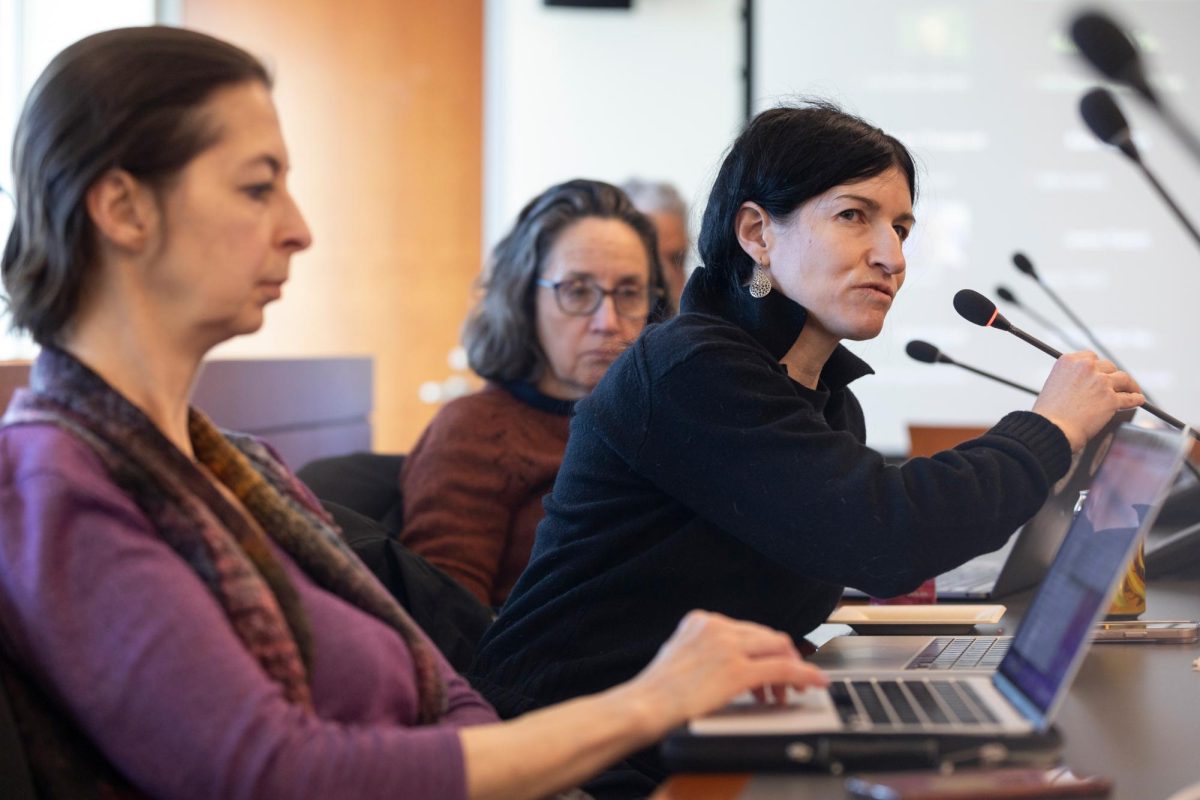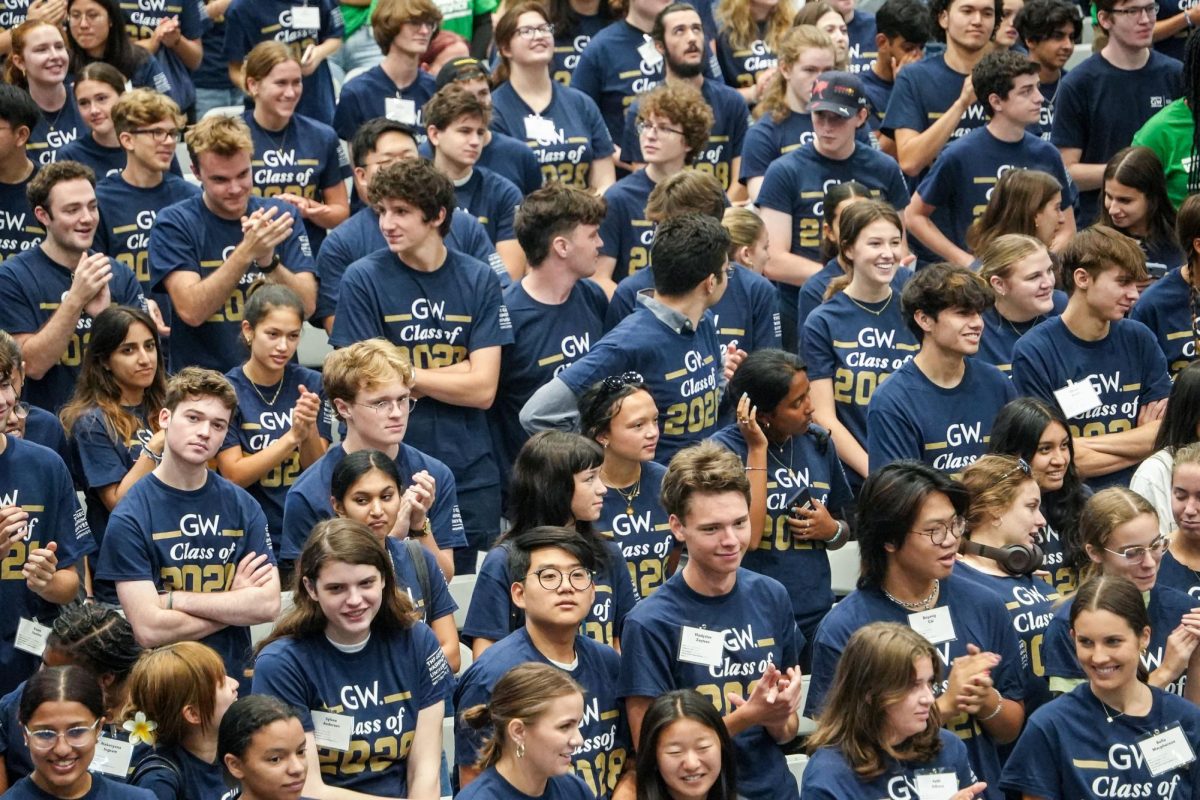Faculty living in residence halls said the COVID-19 pandemic has left them trying to find new ways to build community with the dozens of students they oversee.
After officials announced the fall semester would be held online, faculty in residence assumed many of the responsibilities of the resident adviser role, tasked with creating new online events to bring the GW community together. They said they have hosted weekly virtual events like cooking lessons and academic events on the platform GW Engage but have found it difficult to engage with students.
Stewart Robinette, the assistant dean of students, campus living and residential education, said each faculty member has been assigned about 45 students each and are required to check in with students and provide mentoring on a “consistent basis.”
He said each faculty in residence is required to conduct “at least one intellectual engagement program” every two weeks, and officials have scheduled the events calendar so there are options available for students at least once a week.
“The faculty in residence program is the embodiment of the University’s commitment to promoting a sense of community among those students who are on campus and encouraging intellectual curiosity and learning beyond the confines of the classroom,” Robinette said in an email.
He said faculty are typically only responsible for the students living in their residence hall, but their responsibilities changed to meet the needs of a smaller on-campus student population. About 500 students live in District House and Shenkman and South halls this fall.
“We decided to retain the program despite a limited student population on campus because pandemic makes the need for community building even more urgent,” Robinette said.
He said the faculty in residence have been given information about the safety steps being taken for all residence halls and are part of the “testing cohort” that officials created for all on-campus students. Robinette said the program will continue in the spring.
William Youmans, a faculty in residence in Shenkman Hall and an associate professor of media and public affairs, said he has been hosting virtual Middle Eastern cooking lessons for the students in his hall. He said he has noted a drop in engagement and attendance for his events compared to last year.
“It’s an unusual semester, and everyone is exhibiting signs of Zoom fatigue,” he said.
Youmans said the move to virtual learning was a “challenging time of transition,” and he has struggled to meet as many students as usual during virtual instruction.
“Only one-fourth of the building is populated, so a lot of times I’m going in and out the building or doing laundry, and I don’t really see any students,” he said. “We don’t have the casual face-to-face encounters that I used to have as a way to meet students.”
Youmans said many students are unaware of his presence as a faculty in residence – a student once called the GW Police Department on him thinking there was an intruder in the building when Youmans was getting back late at night with his family.
“It wasn’t a big deal, but it just showed how it wasn’t a smooth transition because of the limitations of how we can hold events,” he said.
Arturo Sotomayor, a faculty in residence in JBKO Hall and an associate professor of international affairs, said no students are currently living in JBKO, but he has been assigned about 45 students from other buildings to oversee.
He said he has held virtual events this semester, like a Spanish “language cafe” for students to practice their skills in conversation and an academic mentorship workshop about graduate school admissions, which he said half a dozen students participated in.
“I have a philosophy that if we can make a meaningful impact to one resident, or 100 residents, then we have made a difference to the GW community,” he said.
Sotomayor said one of the goals of the program is to allow students to see the “human dimension” of faculty members, which he said has been difficult this year.
“I can tell you that as a faculty in residence, it’s also tremendously isolating to live in a building that is empty,” he said. “This was such a lively hall.”
Ethan Porter, a faculty in residence at 1959 E St. and an assistant professor of media and public affairs, said he has been working to provide students with academic events like guest speakers, book clubs and watch parties of political events.
“Pre-COVID, I got to know students who lived in 1959 E St.,” he said. “That’s no longer the case. I get to know students now from all over the University, which I think is a very interesting, very different slice of life at GW.”
Pauline Goul, a faculty in residence in International House and an assistant professor of French, said she has not been able to meet the students in her building this semester because there are fewer students living in the building who she would usually run into in the halls.
She said “few” students have shown up to her events this semester, but attendance is similar to that of previous years because students usually had internships or work that conflicted with her events.
“If one person shows up to a program that I do, that is on how to succeed in a class online for instance, then I’m happy because that was useful for that student, and I made a connection that day with students who was not one of my students in my classes,” she said.








